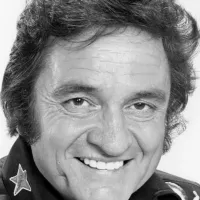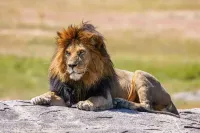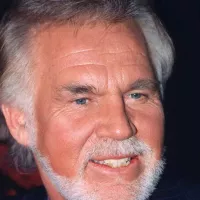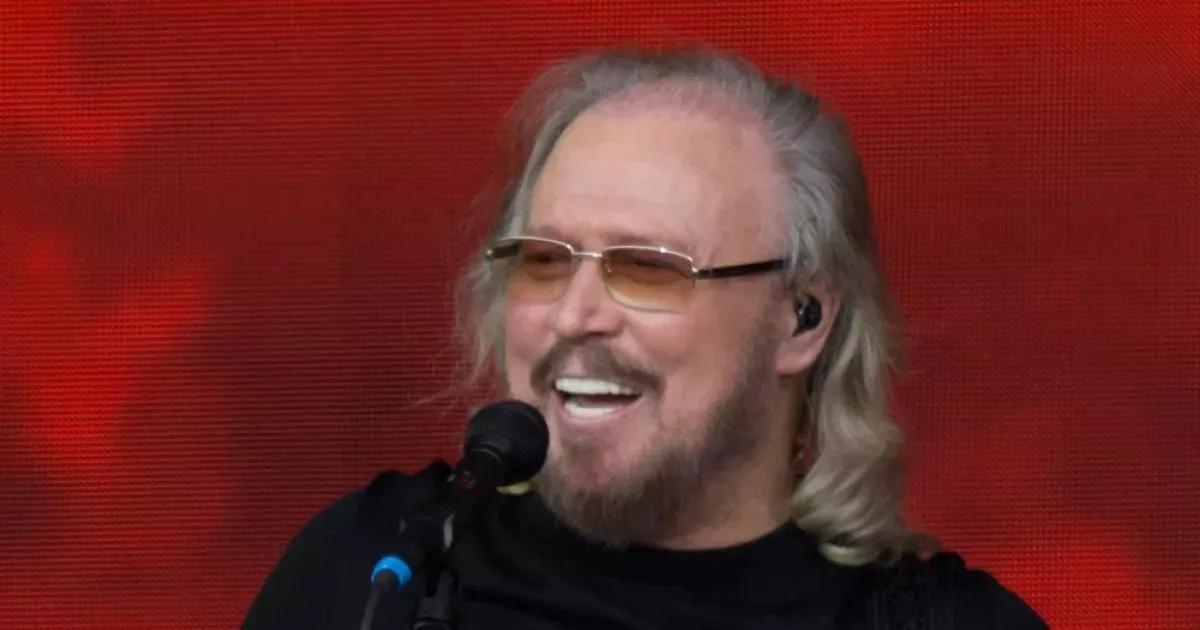Sir Barry Alan Crompton Gibb is a highly successful British musician, singer, songwriter, and record producer. He achieved international fame as a member of the Bee Gees, alongside his younger twin brothers, Robin and Maurice. The Bee Gees became one of the most commercially successful groups in popular music history. Barry Gibb is particularly recognized for his wide vocal range, notably his high-pitched falsetto. His career has spanned over six decades.
January 1916: Birth of Hugh Gibb
Barry Gibb's father, Hugh Gibb, was born in January 1916.
November 1920: Birth of Barbara Gibb
Barbara Gibb, Barry Gibb's mother, was born in November 1920.
1941: New York Mining Disaster 1941
No event information related to Barry Gibb found for this date.
September 1946: Birth of Barry Gibb
Barry Gibb was born in September 1946 in Douglas, Isle of Man to Hugh and Barbara Gibb.
1949: Birth of Robin and Maurice Gibb, Relocation to Spring Valley
In 1949, Barry Gibb's younger twin brothers, Robin and Maurice, were born on December 22nd. The family also relocated to Spring Valley, Douglas.
September 1951: Barry Gibb starts school
Barry Gibb began attending Braddan school in September 1951.
1952: Relocation to Snaefell Road, Attends Tynwald Street Infants School
The Gibb family moved to Snaefell Road, Willaston in 1952, and Barry Gibb attended Tynwald Street Infants School.
1953: Attends Desmesne Road Boys School
Barry Gibb attended Desmesne Road Boys School in 1953.
1955: Formation of the Rattlesnakes
Barry Gibb and his brothers formed the skiffle group the Rattlesnakes in 1955.
December 1957: The Rattlesnakes' First Professional Gig
The Rattlesnakes performed their first professional gig at the Gaumont Cinema in December 1957.
May 1958: Relocation to Northern Grove, Departure of Band Members
The Gibb family moved to Northern Grove in May 1958, leading to the departure of Paul Frost and Kenny Horrocks from the band.
1959: Bee Gees Sing at Redcliffe Speedway
The Bee Gees started singing between races at the Redcliffe Speedway in 1959.
September 1961: Gibb Quits School, Family Moves to Surfers Paradise
Barry Gibb quit school in September 1961, and the family moved to Surfers Paradise.
September 1962: Gibb Auditions Songs for Col Joye
Barry Gibb auditioned songs for Col Joye in September 1962.
July 1963: Lonnie Lee Records Gibb's Song
Lonnie Lee recorded Barry Gibb's song "I'd Like To Leave If I May" in July 1963.
1963: Gibb Family Moves to Sydney
The Gibb family relocated to Sydney at the beginning of 1963.
1964: "One Road" and "I Just Don't Like to Be Alone" Chart Success
Barry Gibb's compositions "One Road" and "I Just Don't Like to Be Alone" achieved chart success in Australia in 1964.
1965: Start of Festival Albums Collection Period
The Bee Gees' Festival Albums Collection covers the period from 1965-1967.
August 1966: First Marriage
Barry Gibb married Maureen Bates in August 1966.
1966: First Performance of "Playdown"
Barry Gibb performed "Playdown" live for the first time in 2013, originally released in 1966.
1966: Gibb Wins Radio 5KA Award
Barry Gibb won the Radio 5KA award for best composition of the year for "I Was a Lover, A Leader of Men" in 1966.
1966: Gibb's Songs Recorded by Other Artists
Between 1963 and 1966, many Australian artists recorded Barry Gibb's songs.
March 1967: Gibb Meets John Lennon
Barry Gibb met John Lennon at The Speakeasy Club in London in March 1967.
December 1967: Barry and Robin's Journey to Australia
In December 1967, Barry and Robin Gibb experienced significant personal and professional stress, leading to nervous exhaustion during a flight from Australia to Turkey. On December 23, 1967, they left England for Australia, effectively skipping Christmas Eve due to time differences. Upon arrival, they celebrated Christmas with their manager Robert Stigwood's family in Sydney.
1967: First Performance of "Every Christian Lion Hearted Man Will Show You"
Barry Gibb performed "Every Christian Lion Hearted Man Will Show You" live for the first time in 2013, originally released in 1967.
1967: Strain from Fame on the Bee Gees
By the end of 1967, the Bee Gees were facing the pressures of fame, leading to tensions within the group. This period marked the beginning of internal conflicts over the musical direction of the band.
1967: New York Mining Disaster 1941 Release
The Bee Gees released "New York Mining Disaster 1941" in 1967.
1967: Bee Gees Return to UK, Sign with Stigwood, Release Bee Gees' 1st
The Bee Gees returned to the UK and signed with Robert Stigwood in 1967, releasing their first international LP, "Bee Gees' 1st".
1968: First Performance of "With the Sun in My Eyes"
Barry Gibb performed "With the Sun in My Eyes" live for the first time in 2013, originally released in 1968.
1968: Recalls Early Performances
In 1968, Barry Gibb recalled the Rattlesnakes' early performances and song choices.
1968: Bee Gees' U.S. Television Debut and Social Gatherings
In 1968, the Bee Gees promoted their album 'Horizontal' with their first U.S. television appearances on shows like The Smothers Brothers Show and The Ed Sullivan Show. Additionally, they filmed a TV special with Frankie Howerd. That year, Barry Gibb was also photographed at a Hollywood party with actress Angela Cartwright and members of Honey Ltd.
December 1969: Bee Gees Announce Split
At the start of December 1969, the Bee Gees announced their split. Following this, Barry Gibb spent January 1970 writing new songs for future recordings.
1969: First Performance of "I Started a Joke"
Barry Gibb performed "I Started a Joke" live for the first time in 2013, originally released in 1969.
1969: Release of 'First of May' and Band Changes
In 1969, the Bee Gees released 'First of May' as an A-side single, while Robin Gibb announced his solo plans. This led to the release of the Bee Gees' first single without Robin, 'Tomorrow Tomorrow'. The group experienced further changes when Petersen left, leaving only Barry and Maurice Gibb.
February 1970: Barry Gibb Begins Solo Album
In February 1970, Barry Gibb began recording his first solo album, 'The Kid's No Good'. He released the single 'I'll Kiss Your Memory', which did not chart in the UK or US but reached No. 16 in the Netherlands. Other songs from the album remained unreleased.
April 1970: Release of 'Cucumber Castle' Album
In April 1970, the album 'Cucumber Castle' was released, featuring only Barry and Maurice Gibb. During this time, Barry resumed live performances, expressing his longing for stage appearances.
July 1970: Divorce
Barry Gibb and Maureen Bates divorced in July 1970.
July 1970: Barry Gibb's Australia Visit and Interview
In July 1970, Barry Gibb traveled to Australia, serving as the compere for Go-Set. During this visit, he gave an interview revealing the lingering effects of the Bee Gees' break-up and his unwillingness to argue with his brothers.
August 1970: Planned Release of 'One Bad Thing' and Bee Gees Reunion
In August 1970, Atco prepared to release Barry Gibb's 'One Bad Thing' with 'The Day Your Eyes Meet Mine' as the B-side. However, focus shifted to the Bee Gees' reunion single 'Lonely Days'. Barry continued songwriting and hoped for acting opportunities, later giving 'One Bad Thing' to Ronnie Burns for release.
August 1970: Bee Gees Reunite and Create New Music
In August 1970, the Bee Gees reunited and held their first session together, resulting in the creation of 'Lonely Days' and 'How Can You Mend a Broken Heart'. This marked the beginning of their collaborative efforts post-break-up.
September 1970: Second Marriage
Barry Gibb married Linda Gray on his 24th birthday in September 1970.
December 1970: Airing of 'Cucumber Castle' Film
On December 26, 1970, the film 'Cucumber Castle', featuring only Barry and Maurice Gibb after Petersen's departure, aired on BBC2. This marked a significant point in the Bee Gees' history post-split.
1970: The Kid's No Good
Barry Gibb worked on the unreleased album "The Kid's No Good" in 1970, showcasing his country music influence.
1970: Barry Gibb's Solo Productions and Changes in Band Line-Up
In 1970, Barry Gibb co-wrote and produced songs for Samantha Sang and P.P. Arnold. During this time, the Bee Gees underwent changes, with Terry Cox replacing Petersen to help complete recording projects.
1971: Original Release of "How Can You Mend a Broken Heart"
The song "How Can You Mend a Broken Heart," which Michael Bublé covered with Barry Gibb's background vocals in 2002, was originally released in 1971.
1973: Birth of Stephen Gibb
Stephen Gibb, Barry's son, was born in 1973.
1976: Collaboration with Vince Melouney
In 1976, Gibb collaborated with Vince Melouney, writing two songs, "Let It Ride" and "Morning Rain," that remained unrecorded.
November 1977: Saturday Night Fever Soundtrack Release
In November 1977, the soundtrack for the film "Saturday Night Fever" was released, becoming the best-selling soundtrack of all time.
December 1977: Start of Seven US Number One Singles
Between December 1977 and September 1978, seven songs written by Barry Gibb reached number one in the United States.
December 1977: Chart Success
Starting in December 1977, Barry Gibb had a string of successful songs in the charts.
1977: Birth of Ashley Gibb
Ashley Gibb, Barry's son, was born in 1977.
February 1978: Background Vocals for "Ain't Nothing Gonna Keep Me From You"
In February 1978, Barry Gibb provided background vocals for the song "Ain't Nothing Gonna Keep Me From You," featuring Teri DeSario on lead vocals.
July 1978: Sgt. Pepper's Lonely Hearts Club Band Film Release
The film "Sgt. Pepper's Lonely Hearts Club Band", featuring Barry Gibb as Mark Henderson, premiered in July 1978.
September 1978: End of Chart Domination
By September 1978, Barry Gibb's streak of chart-topping hits had ended.
September 1978: End of Seven US Number One Singles
The period between December 1977 and September 1978 marked a successful run for Barry Gibb, with seven of his songs reaching number one in the United States.
1979: Spirits Having Flown Tour
The Bee Gees embarked on their successful Spirits Having Flown Tour in 1979 to promote the album of the same name.
September 1980: Andy Gibb's Greatest Hits
Barry Gibb produced three new songs for Andy Gibb's first compilation album, "Andy Gibb's Greatest Hits," in September 1980.
October 1980: Barbra Streisand's Guilty Release
Barbra Streisand's album "Guilty," produced by the Gibb-Galuten-Richardson team, was released in October 1980, featuring successful singles like "Woman in Love."
1980: Andy Gibb's After Dark Album
Following the Bee Gees' tour, Barry Gibb focused on writing, producing, and singing on almost all of the songs for Andy Gibb's final album, "After Dark," released in 1980.
1981: Bee Gees Release Living Eyes
The Bee Gees released their album "Living Eyes" in 1981, marking a departure from their disco sound.
1981: Birth of Travis Gibb
Travis Gibb, Barry's son, was born in 1981.
1982: Work with Dionne Warwick
Barry Gibb wrote and produced Dionne Warwick's album "Heartbreaker" in 1982.
April 1983: Recording Demos and Staying Alive
Barry Gibb continued recording demos for Kenny Rogers and worked on songs with the Bee Gees for the film "Staying Alive" until April 1983.
August 1983: Start of Work with Kenny Rogers
Barry Gibb met Kenny Rogers and began recording demos, including "Eyes That See in the Dark," in August 1983.
August 1983: Signing with MCA Records
Irving Azoff signed Barry Gibb to MCA Records for North America in August 1983.
September 1984: Now Voyager Release
Barry Gibb's album and film "Now Voyager" were released in September 1984, featuring the single "Shine, Shine."
1984: Birth of Michael Gibb
Michael Gibb, Barry's son, was born in 1984.
1985: Work with Carola and The Bunburys
Barry Gibb co-wrote songs for Swedish singer Carola's album "Runaway" and joined the supergroup The Bunburys in 1985.
1985: Work with Diana Ross and Robin Gibb
In 1985, Barry Gibb began recording demos for Diana Ross's album "Eaten Alive" and co-wrote songs for Robin Gibb's "Walls Have Eyes."
1986: Words of a Fool
Barry Gibb wrote "Words of a Fool" in 1986.
1986: New Album Preparations
Barry Gibb wrote new songs for his next album in late 1985 and early 1986, although "Moonlight Madness" was not released until 1988.
July 1987: Producing Andy Gibb's New Songs
Barry and Maurice Gibb produced four new songs for Andy Gibb in June and July 1987, including "Arrow Through the Heart."
September 1988: Hawks Soundtrack Release
The soundtrack for the film "Hawks," featuring songs performed by Barry Gibb, was released in September 1988.
1988: Moonlight Madness Release
Barry Gibb's album "Moonlight Madness," containing songs written earlier, was released in 1988.
September 1990: Producing Kelli Wolfe
Barry Gibb produced Kelli Wolfe's song "Born to Be Loved by You" in September 1990.
1991: Birth of Alexandra Gibb
Alexandra Gibb, Barry's daughter, was born in 1991.
March 1992: Death of Hugh Gibb
Hugh Gibb, Barry Gibb's father, passed away in March 1992.
1992: Guitar Work for Lulu
Barry Gibb played guitar on Lulu's song "Let Me Wake Up in Your Arms" around 1992.
August 1993: Kelli Wolfe B-side Release
Kelli Wolfe's song "Born to Be Loved by You," produced by Barry Gibb, was released as a B-side in August 1993.
1994: Planned Tour Cancelled
A planned tour for the Bee Gees to promote "Size Isn't Everything" was cancelled in 1994 due to Gibb's arthritis.
1994: Induction into Songwriters Hall of Fame
In 1994, Barry Gibb and his brothers were inducted into the Songwriters Hall of Fame.
1997: Induction into Rock and Roll Hall of Fame
Barry Gibb and the Bee Gees were inducted into the Rock and Roll Hall of Fame in 1997.
1997: Rock and Roll Hall of Fame Induction
The Bee Gees were inducted into the Rock and Roll Hall of Fame in 1997.
September 2001: Bee Gees Re-record "Islands in the Stream"
The Bee Gees, without Barry Gibb, re-recorded "Islands in the Stream" in September 2001.
2001: Demo Recording and "Technicolor Dreams"
In 2001, Maurice Gibb recorded keyboard work used later and Barry Gibb wrote "Technicolor Dreams".
2001: Release of "This Is Where I Came In"
The Bee Gees released their final studio album, "This Is Where I Came In", in 2001.
2001: Music Video of "Technicolor Dreams" Shown
The music video for "Technicolor Dreams", written by Barry Gibb, was shown for the first time before his 2013 shows. The song was released in 2001.
2002: Collaboration with Michael Jackson and Michael Bublé
Barry Gibb collaborated with Michael Jackson on "All in Your Name" and sang background vocals on Michael Bublé's version of "How Can You Mend a Broken Heart" in 2002.
January 2003: Death of Maurice Gibb
In January 2003, Barry Gibb's brother and fellow Bee Gee, Maurice, passed away.
May 2004: CBE Award and Collaboration with Cliff Richard
Barry and Robin Gibb received the CBE award at Buckingham Palace in May 2004. Barry also produced and contributed to two Cliff Richard songs, incorporating Maurice's keyboard work.
May 2004: CBE Award
Barry and Robin Gibb received their CBE awards in May 2004.
December 2004: Indian Ocean Tsunami
The Indian Ocean tsunami occurred in December 2004, prompting a charity single featuring Barry Gibb in the following months.
January 2005: Charity Single for Tsunami Victims
Barry Gibb participated in recording the charity single "Grief Never Grows Old" for the victims of the Indian Ocean tsunami in January 2005.
May 2005: Collaboration with Barbra Streisand
In May 2005, Barbra Streisand recorded songs for an album produced by Barry Gibb.
January 2006: Purchase of Johnny Cash's Home
In January 2006, Barry Gibb purchased Johnny Cash's former home.
August 2006: Release of "Doctor Mann" and "Underworld"
Two singles by Barry Gibb, "Doctor Mann" and "Underworld", were released on iTunes in August 2006. The latter was featured on the soundtrack for the film "Arctic Tale".
December 2006: Campaign for Copyright Extension
Barry Gibb joined other musicians in December 2006 to advocate for extending copyright protection for sound recordings in the UK.
April 2007: House Fire
In April 2007, the house Barry Gibb purchased burned down.
2007: Release of "Drown On the River" and Other Projects
Barry Gibb released "Drown On the River", contributed to Jamie Jo's song, wrote music for "Grease Is the Word", and mentored on American Idol in 2007.
2007: Ranked on Q Magazine's 100 Greatest Singers
In 2007, Barry Gibb was ranked number 38 on Q Magazine's list of the 100 Greatest Singers.
2007: Q Magazine Ranking
In 2007, Q magazine ranked Barry Gibb #38 on its list of '100 Greatest Singers'.
February 2009: Victorian Bushfires
The Victorian Bushfires occurred in February 2009, leading to the Sound Relief fundraising concert.
March 2009: Sound Relief Concert Performance
Barry Gibb and Olivia Newton-John performed at the Sound Relief concert in Sydney in March 2009 to raise funds for victims of the Victorian Bushfires.
July 2009: Freeman of the Borough of Douglas
Barry Gibb, along with his brothers Robin and Maurice, were made Freemen of the Borough of Douglas in July 2009.
2009: Islands in the Stream No. 1
"Islands in the Stream" reached No. 1 in the UK in 2009.
2009: US Citizenship
Barry Gibb and his wife became US citizens in 2009.
2010: "Arrow Through the Heart" Release
Andy Gibb's song "Arrow Through the Heart," produced by Barry and Maurice Gibb in 1987, was released in 2010.
2010: Withdrawal from Gorillaz Album
In 2010, Barry Gibb withdrew from a planned appearance on the Gorillaz album "Plastic Beach".
December 2011: Release of "Grey Ghost" and "Daddy's Little Girl"
Barry Gibb released "Grey Ghost" and "Daddy's Little Girl" in December 2011.
February 2012: First US Solo Concert
Barry Gibb performed his first solo concert in the U.S. in February 2012.
May 2012: Death of Robin Gibb
Robin Gibb, Barry's brother and Bee Gee bandmate, passed away in May 2012.
July 2012: Grand Ole Opry Debut and Collaboration with Ricky Skaggs
Barry Gibb debuted at the Grand Ole Opry and collaborated with Ricky Skaggs in July 2012.
October 2013: Appearances at Country Music Hall of Fame and Grand Ole Opry
Barry Gibb appeared at the Country Music Hall of Fame and the Grand Ole Opry in October 2013.
December 2013: Saturday Night Live Appearance
Barry Gibb made a surprise appearance on Saturday Night Live in December 2013.
2013: Mythology Tour and Release of Bee Gees Material
Barry Gibb embarked on the Mythology Tour in 2013, featuring Bee Gees songs and prompting the release of a box set and compilation album.
January 2014: Late Night with Jimmy Fallon and CNN Interview
Barry Gibb appeared on Late Night with Jimmy Fallon and was interviewed by CNN in January 2014.
July 2014: Friendship with Michael Jackson
In July 2014, Barry Gibb discussed his friendship with Michael Jackson.
July 2014: Mirror Interview and Continued Mourning
In a July 2014 Mirror interview, Barry Gibb discussed his ongoing grief after Robin's death.
November 2014: Appearance on "The Art of McCartney" Album
Barry Gibb performed on the Paul McCartney tribute album, "The Art of McCartney", released in November 2014.
2014: Sale of Tennessee Property
Barry Gibb sold his Tennessee property in 2014.
February 2015: Grammy Awards Presentation
Barry Gibb presented at the 57th Annual Grammy Awards in February 2015.
March 2015: Hard Rock Rising Miami Beach Global Music Festival
Barry Gibb headlined the Hard Rock Rising Miami Beach Global Music Festival in March 2015.
June 2016: Glastonbury Festival Appearance with Coldplay
Barry Gibb made a guest appearance with Coldplay at the Glastonbury Festival in June 2016.
June 2016: Signing with Columbia Records and "In the Now" Announcement
Barry Gibb signed with Columbia Records and announced his upcoming solo album, "In the Now", in June 2016.
August 2016: Death of Barbara Gibb
Barbara Gibb, Barry Gibb's mother, died in August 2016.
October 2016: Release of "In the Now"
Barry Gibb released his second solo album, "In the Now", in October 2016.
2016: Previous Glastonbury Performance with Coldplay
Barry Gibb had previously joined Coldplay onstage at the 2016 Glastonbury Festival.
June 2017: Glastonbury Festival "Legend" Spot
Barry Gibb performed the "legend" spot at the Glastonbury Festival in June 2017.
2018: Knighthood
Barry Gibb was awarded a knighthood in 2018.
2018: Knighted for services to music and charity
Barry Gibb was knighted in 2018 for services to music and charity.
November 2020: Greenfields Album Announcement
In November 2020, Barry Gibb announced his upcoming album "Greenfields", a duets album featuring country artists.
January 2022: Appointed Honorary Companion of the Order of Australia
Barry Gibb was appointed an Honorary Companion of the Order of Australia in January 2022.
December 2023: Kennedy Center Honors
Barry Gibb was honored at the 46th Annual Kennedy Center Honors in December 2023.
2023: Kennedy Center Honoree
Barry Gibb became a Kennedy Center Honoree in 2023.
2024: Bee Gees Biopic Pre-production
In 2024, Gibb focused on pre-production work for a planned Bee Gees biopic.
Mentioned in this timeline

Michael Joseph Jackson the King of Pop was a highly...

Johnny Cash the Man in Black was a highly influential...
Saturday Night Live SNL is a late-night live sketch comedy...
The Kennedy Center Honors are annual awards recognizing individuals and...

The lion Panthera leo is a large cat species native...

Kenny Rogers was a highly successful American singer and songwriter...
Trending

21 minutes ago Civil Rights Icon Jesse Jackson Passes Away at 84: A Legacy Remembered

1 day ago Democrats and Europe grapple with Trump's impact; Newsom says Trump unified Europe.

21 minutes ago Elise Mertens faces Emma Navarro in WTA Dubai 2026; Predictions and Odds

1 day ago Iva Jovic Inspired by Djokovic, Competes in WTA Dubai, Faces Anisimova.

1 hour ago Magda Linette Advances to WTA Dubaj Round 2, Fr?ch Eliminated, Other Final Matches

1 hour ago Clara Tauson vs. Peyton Stearns: WTA Dubai 2026 Match Prediction and Preview
Popular
Randall Adam Fine is an American politician a Republican who...

Pam Bondi is an American attorney lobbyist and politician currently...

Kid Rock born Robert James Ritchie is an American musician...

Barack Obama the th U S President - was the...
The Winter Olympic Games a major international multi-sport event held...

XXXTentacion born Jahseh Dwayne Ricardo Onfroy was a controversial yet...
